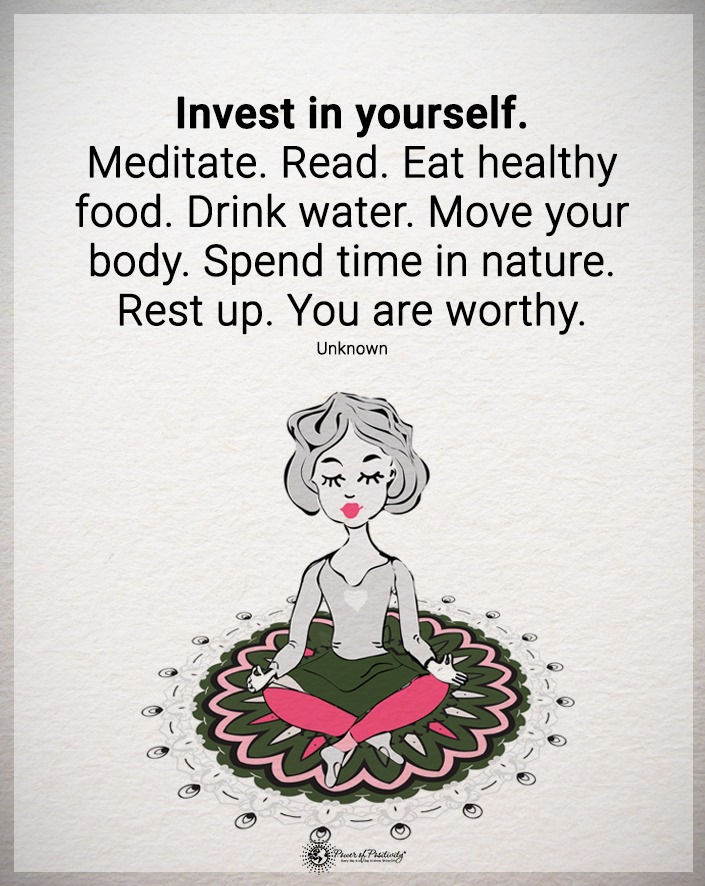Building strong, toned abs is a goal for many, but should you really be working them every day? It’s a topic that sparks plenty of debate among fitness experts. Some say go for it, while others believe you’re risking more than just sore muscles. So, can you do abs every day and still see safe, effective results?
The answer isn’t as simple as yes or no. It depends on your body, goals, and how you approach your ab workouts. In this article, we’ll explore the potential benefits and risks of daily ab exercises, giving you the insight you need to make the best choice for your fitness journey.
Breaking Down Your Abdominal Muscles

Highlight: Your abdominal muscles are more than just for show—they play a crucial role in stabilizing your body and supporting nearly every movement you make.
Before diving into ab exercises, it’s important to understand the key muscles that make up your core and how they work together to keep you strong and balanced.
Key Ab Muscles
The core is often thought of as a single entity, but it’s actually a group of muscles working together. When it comes to ab exercises, three key muscles are involved:
- Rectus Abdominis: Commonly known as the “six-pack” muscle, the rectus abdominis runs vertically along the front of your abdomen. It’s responsible for flexing the spine and bringing your ribs and pelvis closer together—think of movements like crunches and sit-ups.
- Transverse Abdominis: This is the deepest layer of abdominal muscles. It wraps around your torso like a corset, providing stability and acting as a brace for your spine. It’s activated during movements requiring balance and support, like planks and leg raises.
- Obliques: These muscles are located on the sides of your abdomen, and they are split into two parts—the internal and external obliques. They help with rotating and bending the torso, as well as stabilizing your core during dynamic movements, such as twisting or side crunches.
How These Muscles Function
Your abdominal muscles do much more than create the appearance of a six-pack—they are crucial for the proper functioning of your body during everyday movements. These muscles work in unison to stabilize the spine, ensuring that when you lift, bend, or twist, your spine remains protected and supported.
The transverse abdominis, for example, acts like a built-in brace, distributing pressure and reducing strain on your back. Additionally, the core plays a vital role in maintaining balance and posture.
Whether you’re standing, walking, or sitting, your abs are constantly engaged, helping you stay upright and steady. Essentially, your core is the center of movement for nearly every activity you perform.
So, Can You Do Abs Every Day?

Daily ab exercises are a tempting idea, especially if you’re chasing faster results. But the reality is, the answer to working out daily isn’t so straightforward. Let’s break it down.
Potential Benefits
For those who are dedicated and mindful of how they train, working on abs every day can offer several benefits:
 Frequent ab workouts can lead to a stronger core, including better definition in your upper abs, which helps improve posture and makes everyday activities easier.
Frequent ab workouts can lead to a stronger core, including better definition in your upper abs, which helps improve posture and makes everyday activities easier. Consistent ab training may help develop muscle tone, leading to more defined abs over time, especially when paired with a balanced diet and fat loss.
Consistent ab training may help develop muscle tone, leading to more defined abs over time, especially when paired with a balanced diet and fat loss. A strong core can improve performance in various sports and physical activities by enhancing balance, stability, and power during movement.
A strong core can improve performance in various sports and physical activities by enhancing balance, stability, and power during movement. By more evenly distributing pressure, strengthening your core muscles may protect your lower back and potentially lessen discomfort brought on by poor posture or muscle imbalances.
By more evenly distributing pressure, strengthening your core muscles may protect your lower back and potentially lessen discomfort brought on by poor posture or muscle imbalances.
Risks and Considerations
While there are benefits, doing abs every day also comes with risks, especially if not done correctly.
 Like any muscle group, your abs need time to recover. Training abs every day without rest can lead to overtraining, resulting in fatigue, soreness, and even injury. Muscles grow and repair during rest, so skipping recovery can hinder progress.
Like any muscle group, your abs need time to recover. Training abs every day without rest can lead to overtraining, resulting in fatigue, soreness, and even injury. Muscles grow and repair during rest, so skipping recovery can hinder progress. Focusing too much on ab exercises while neglecting other muscles can create imbalances. For instance, if your entire core becomes too strong compared to your lower back, you could be at greater risk of injury.
Focusing too much on ab exercises while neglecting other muscles can create imbalances. For instance, if your entire core becomes too strong compared to your lower back, you could be at greater risk of injury. Doing the same exercises daily can lead to adaptation, where your body becomes so accustomed to the routine that it stops making gains. Variety and rest are key to continued progress.
Doing the same exercises daily can lead to adaptation, where your body becomes so accustomed to the routine that it stops making gains. Variety and rest are key to continued progress.
Is Daily Ab Training Safe for Everyone?

When it comes to daily ab training, one size doesn’t fit all. Some individuals may tolerate daily workouts without issue, while others could experience negative side effects like injury, muscle strain, or imbalances. The safety of working your abs every day largely depends on personal factors such as fitness level, goals, and recovery time.
For beginners or those with a lower fitness level, daily ab exercises can easily lead to overtraining, causing fatigue and delaying progress. More advanced fitness enthusiasts, however, might have the endurance to handle frequent core training if they vary exercises and focus on proper form.
Goals also play a significant role—someone aiming for core strength may need fewer sessions compared to someone focusing on muscle definition.
Lastly, adequate recovery is crucial. Your muscles need time to repair and grow stronger. Ignoring rest days can lead to soreness and increase the risk of injury, making it vital to listen to your body and adjust your training routine accordingly.
Guidelines for Safe Daily Ab Training
If you decide to train your abs daily, it’s crucial to do so safely and effectively. These guidelines will help you avoid common pitfalls like overtraining and injury.
1. Incorporate Variety
Rotating exercises is key to targeting all areas of your abs and preventing overuse of the same muscles. Try to include a mix of movements that hit the rectus abdominis, obliques, and transverse abdominis. Remember, focusing on just one ab workout won’t effectively target all areas of your core.
For example, switch between planks, leg raises, Russian twists, and bicycle crunches. This not only challenges different parts of your core but also helps you avoid hitting a training plateau.
2. Keep Workouts Short
Ab muscles are relatively small, and training them doesn’t require long sessions. To avoid overworking them, limit your ab workout frequency to 5-10 minutes per day, ensuring your muscles have time to recover and grow.
Focus on quality over quantity—form and control are more important than how many reps you can complete. Short, targeted sessions are both effective and sustainable.
3. Listen to Your Body
Rest is just as important as exercise. If you’re feeling sore or fatigued, take a break. Overtraining your core can lead to muscle strain or injury, especially if you don’t allow for adequate recovery time.
Your abs need rest just like any other muscle group, so be mindful of how your body responds to daily workouts.
4. Balance Ab Exercises with Full-Body Workouts
While it’s tempting to focus solely on your abs, incorporating full-body workouts into your routine is crucial. Exercises like squats, deadlifts, and push-ups also engage your core and provide balanced muscle development.
This approach helps prevent imbalances and ensures you’re training your entire body, not just your abs.
Common Myths About Ab Training
- Myth 1: Doing Abs Every Day is the Best Way to Get a Six-Pack: Contrary to popular belief, if you train abs every day, it is not the fastest route to a six-pack. Like any other muscle group, your abs need time to recover to grow stronger.
- Myth 2: Spot Reduction Works: The idea that you can burn fat in specific areas by working out those muscles—has been debunked. No matter how many crunches you do, they won’t directly target belly fat.
- Myth 3: Core Strength Requires Daily Ab Exercises: You don’t need to perform a daily ab workout to build core strength. Many compound exercises, such as squats, deadlifts, and planks, engage the core and are often more effective.
- Myth 4: You Can Get Abs Fast with the Right Workout: Quick fixes don’t lead to sustainable abs. Achieving visible abs requires a long-term commitment to exercise, a healthy diet, and rest.
- Myth 5: Only Crunches Will Give You Abs: Crunches aren’t the only way to work your abs. Core exercises like planks, leg raises, and compound movements engage your core.
FAQs
Should I do ab exercises before or after my workout?
It’s best to perform ab exercises after your main workout to prevent core fatigue, which can affect your performance in heavier lifts like squats. Prioritizing abs at the end ensures your core isn’t pre-exhausted during critical exercises.
How long does it take to get visible core strength?
Achieving visible abs depends on your body fat. Those with lower body fat (under 15%) may see results within 8 weeks, while higher body fat percentages could take 6 months to a year, requiring consistent diet and exercise.
Can training abs every day cause muscle imbalances?
Yes, training abs daily without balancing other muscle groups can cause imbalances, particularly in the lower back. A well-rounded routine that includes full-body exercises is key to preventing injury and promoting balanced strength.
Final Thoughts
Building strong abs takes more than just crunches every day—it’s all about balance! Mix it up, give your core some rest, and focus on your overall fitness. Remember, abs are made in the gym and the kitchen, so stay consistent and keep at it. Your six-pack is waiting!
The post Can You Do Abs Every Day? Everything You Need to Know appeared first on Power of Positivity: Positive Thinking & Attitude.




 Frequent ab workouts can lead to a stronger core, including better definition in your upper abs, which helps improve posture and makes everyday activities easier.
Frequent ab workouts can lead to a stronger core, including better definition in your upper abs, which helps improve posture and makes everyday activities easier. Consistent ab training may help develop muscle tone, leading to more defined abs over time, especially when paired with a balanced diet and fat loss.
Consistent ab training may help develop muscle tone, leading to more defined abs over time, especially when paired with a balanced diet and fat loss. A strong core can improve performance in various sports and physical activities by enhancing balance, stability, and power during movement.
A strong core can improve performance in various sports and physical activities by enhancing balance, stability, and power during movement. By more evenly distributing pressure, strengthening your core muscles may protect your lower back and potentially lessen discomfort brought on by poor posture or muscle imbalances.
By more evenly distributing pressure, strengthening your core muscles may protect your lower back and potentially lessen discomfort brought on by poor posture or muscle imbalances. Like any muscle group, your abs need time to recover. Training abs every day without rest can lead to overtraining, resulting in fatigue, soreness, and even injury. Muscles grow and repair during rest, so skipping recovery can hinder progress.
Like any muscle group, your abs need time to recover. Training abs every day without rest can lead to overtraining, resulting in fatigue, soreness, and even injury. Muscles grow and repair during rest, so skipping recovery can hinder progress. Focusing too much on ab exercises while neglecting other muscles can create imbalances. For instance, if your entire core becomes too strong compared to your lower back, you could be at greater risk of injury.
Focusing too much on ab exercises while neglecting other muscles can create imbalances. For instance, if your entire core becomes too strong compared to your lower back, you could be at greater risk of injury. Doing the same exercises daily can lead to adaptation, where your body becomes so accustomed to the routine that it stops making gains. Variety and rest are key to continued progress.
Doing the same exercises daily can lead to adaptation, where your body becomes so accustomed to the routine that it stops making gains. Variety and rest are key to continued progress.
